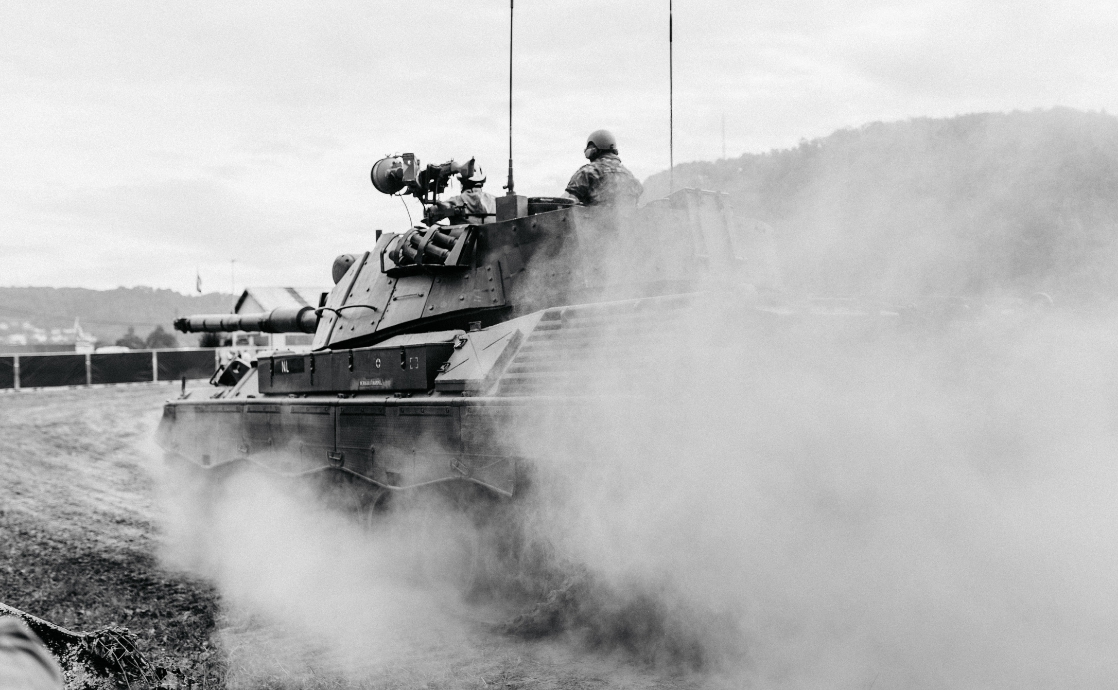The views expressed in our content reflect individual perspectives and do not represent the authoritative views of the Baha'i Faith.
Troops mass on the border. Artillery, bombers, and tanks deploy. Rumors fly. Frustrated diplomats try but fail to lower tensions. The world waits, aghast, for war. What should we do? What can we do?
In times like these, when one country threatens to invade a smaller, militarily weaker nation, our current political structure seems impotent, incapable, and powerless to stop it.
Yes, we send envoys and ambassadors, set up negotiations, and plead with the leaders of the belligerent nation to stand down. Yes, we lodge formal protests at the United Nations. Yes, we all decry the terrible effects of war. Yes, we promise to impose harsh economic sanctions on the invaders.
Sometimes those things work, but then they don’t, and war breaks out. During the past century, two catastrophic failures to respond early and decisively to this kind of national aggression led to the worst and most deadly conflicts in human history – World Wars I and II.
RELATED: Why Soldiers Need a Voice in War
World War I began in 1914 when Austria began shelling Belgrade, the capital of Serbia, and Russia entered the war in support of its ally Serbia.
World War II began in 1939 when Nazi Germany invaded Poland, and the United Kingdom and France responded by declaring war on Germany.
What is wrong with this picture? Historians agree that the world’s leaders could have stopped a wider war in both of these cases, if they had only taken swifter and more significant measures early on in the lead-up to the outbreak of violence.
Can’t we figure out, on a global basis, a more effective way to respond to these aggressive invasions and acts of state-sponsored mass murder before they engulf the whole of humanity? We know from experience that global wars typically begin with hostilities between two countries, and then expand into planet-encircling calamities.
So, world, how about considering the Baha’i solution for this menace? In 1891, in his Epistle to the Son of the Wolf, Baha’u’llah wrote:
It is Our hope that [the sovereigns of the world] will arise to achieve what will be conducive to the well-being of man. It is their duty to convene an all-inclusive assembly, which either they themselves or their ministers will attend, and to enforce whatever measures are required to establish unity and concord amongst men. They must put away the weapons of war, and turn to the instruments of universal reconstruction. Should one king rise up against another, all the other kings must arise to deter him.
This essentially spiritual principle – what the Baha’i teachings call world unity and what the diplomats and world leaders refer to as “collective security” – requires peaceful nations to adhere to a binding pact that consistently opposes armed aggression and commits them to do everything in their power to stop all invasions and attacks. In truth, it obliges the leaders of countries to agree that war is wrong, that it solves nothing, and that it must be halted before it can begin. In principle, it means agreeing that peace is paramount, and that national sovereignty is secondary.
RELATED: Weapons of War: the Malignant Fruits of Material Civilization
The leaders of those countries have already created two mechanisms for making collective security a reality – the League of Nations, formed in 1919 following the disastrous consequences of World War I; and the United Nations, assembled after the terrible toll of World War II. Will it take another global conflagration, at the cost of millions of human lives, to bring about the implementation of Baha’u’llah’s simple prescription for peace?
Be united, O concourse of the sovereigns of the world, for thereby will the tempest of discord be stilled amongst you, and your peoples find rest. Should any one among you take up arms against another, rise ye all against him, for this is naught but manifest justice.
We can guarantee this “manifest justice” right now, not by appeasement or fruitless and endless negotiations or the imposition of toothless economic sanctions, but by convening that “all-inclusive assembly:”
The time must come when the imperative necessity for the holding of a vast, an all-embracing assemblage of men will be universally realized. The rulers and kings of the earth must needs attend it, and, participating in its deliberations, must consider such ways and means as will lay the foundations of the world’s Great Peace amongst men. Such a peace demandeth that the Great Powers should resolve, for the sake of the tranquillity of the peoples of the earth, to be fully reconciled among themselves. Should any king take up arms against another, all should unitedly arise and prevent him.
That time has come.
Does this mean that all the nations of the world need to “rise up” and mount a military defense against the aggressor? No, not necessarily. The world has become an interdependent unit, one linked and connected in millions of ways. No sovereign nation in today’s world could possibly survive for long without access to global trade, commerce, and communication. We have the tools to completely cut off aggressor nations from those channels, and we can use them to prevent war before it breaks out, or even after hostilities have begun.
Sooner or later, Baha’is believe, the world will inevitably come to this realization – that our unity has the power to create peace.
You May Also Like
Comments

















collectively, in word (and) action, informally as well as in all official utterances and public actions,
from assigning blame, taking sides, however indirectly, in recurring political crises now agitating
(and) ultimately engulfing human society."
Geopolitics such as this current conflict are very complex and propaganda is being thrown on both sides. It is very important, I believe, that Bahá'í's stay unaffected by such propaganda and refuse to get involved emotionally or ideologically in any of the conflicting sides.